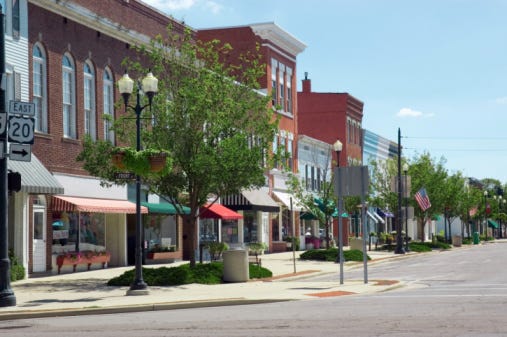I grew up in the 1960s and ‘70s four miles north of a town of little less than 4,000 people in southeastern Wisconsin.
It was a solidly middle-class Midwestern community. My father worked for an automobile plant in nearby Janesville. Most of our neighbors either owned family farms or worked for the numerous factories in town. Others owned and operated small businesses such as diners, nightclubs, a music store, furniture store, pharmacies, law offices and even funeral parlors.
We had an excellent public school system, parks and recreational programs, flourishing churches, civic organizations and so little thought of crime that doors were never locked at day, and rarely at night.
Elkhorn has survived the past four decades by becoming a commuter town for those working in the Milwaukee area. Most small communities have not fared as well. Their populations have aged and declined as their standards of living plummeted.
The rhetoric from both political parties has been that the death of the small-town America of my youth was as inevitable as the changing weather. Just as the advent of automobiles signaled the end of blacksmithing, automation and globalization made U.S. manufacturing and family farms obsolete.
Of course, this is nonsense. While automobiles did eliminate the need for blacksmiths, people are still drinking milk and eating wheat and corn. They still shop and buy cars, use appliances. What has changed is that fewer farm products are being produced by Midwestern family farmers as towns like Lordstown, Ohio no longer manufacture cars and other products.
Granted, automation and globalization are complex issues that were going to impact American workers. But rural America did not have to be decimated. The decline was the result of deliberate economic policies by the two major political parties.
Different policies can produce different results.




